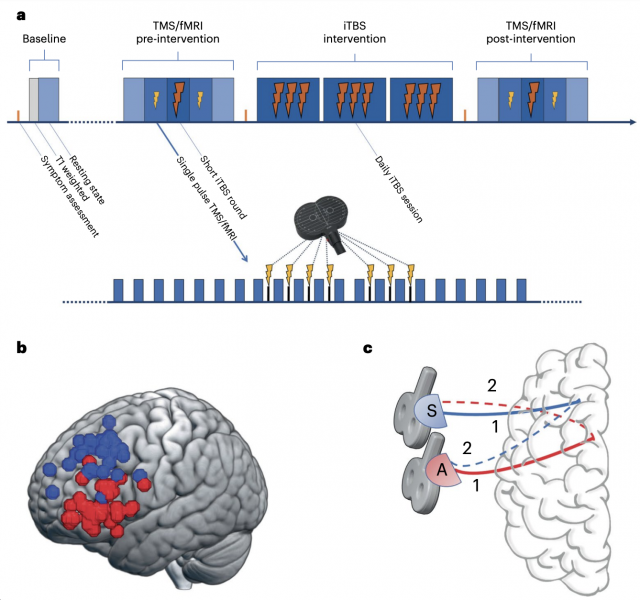
Transcranial magnetic stimulation (TMS) is an FDA-approved therapy for patients with major depressive disorder for whom several psychopharmacologic treatments have failed to produce clinical benefits. In this pilot study, we studied a brief three-day, personalized TMS protocol based on each individual’s functional connectivity map obtained from resting state fMRI data (i.e., an fMRI-guided protocol). We showed that the magnitude of the subgenual anterior cingulate’s response to short bursts of transcranial magnetic stimulation (single pulses of TMS) delivered to an fMRI-guided cortical target was associated with the degree of depression symptom improvement over the course of the three-day TMS treatment which was also delivered to the fMRI-guided cortical target. These results suggest the subgenual anterior cingulate’s acute response to single pulses of TMS may be a useful biomarker for the development of more effective, personalized TMS treatments in the future. This paper was recognized as one of the 2023 Leading Research Achievements by Brain and Behavior Research Foundation Grantees, Prize Winners, and Scientific Council Members. (Linn et al., 2023)
